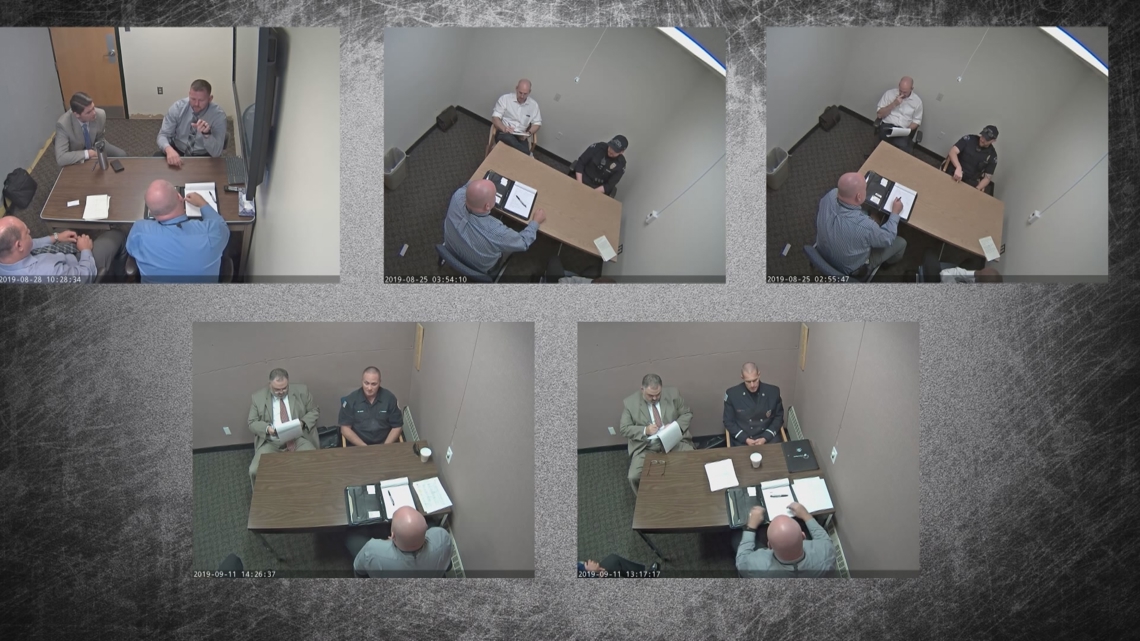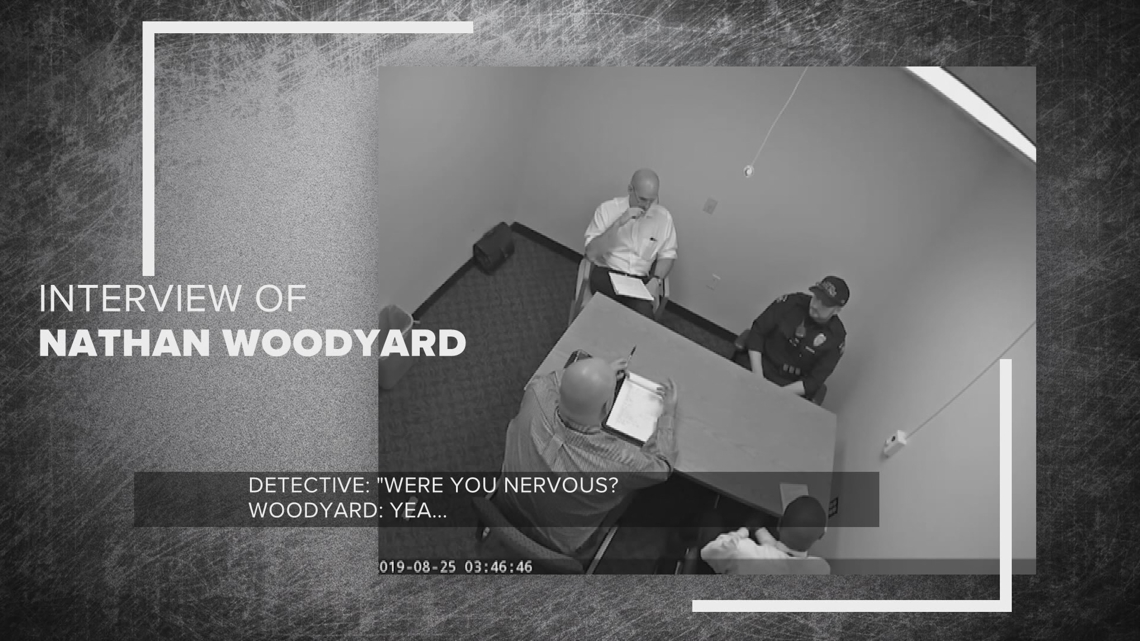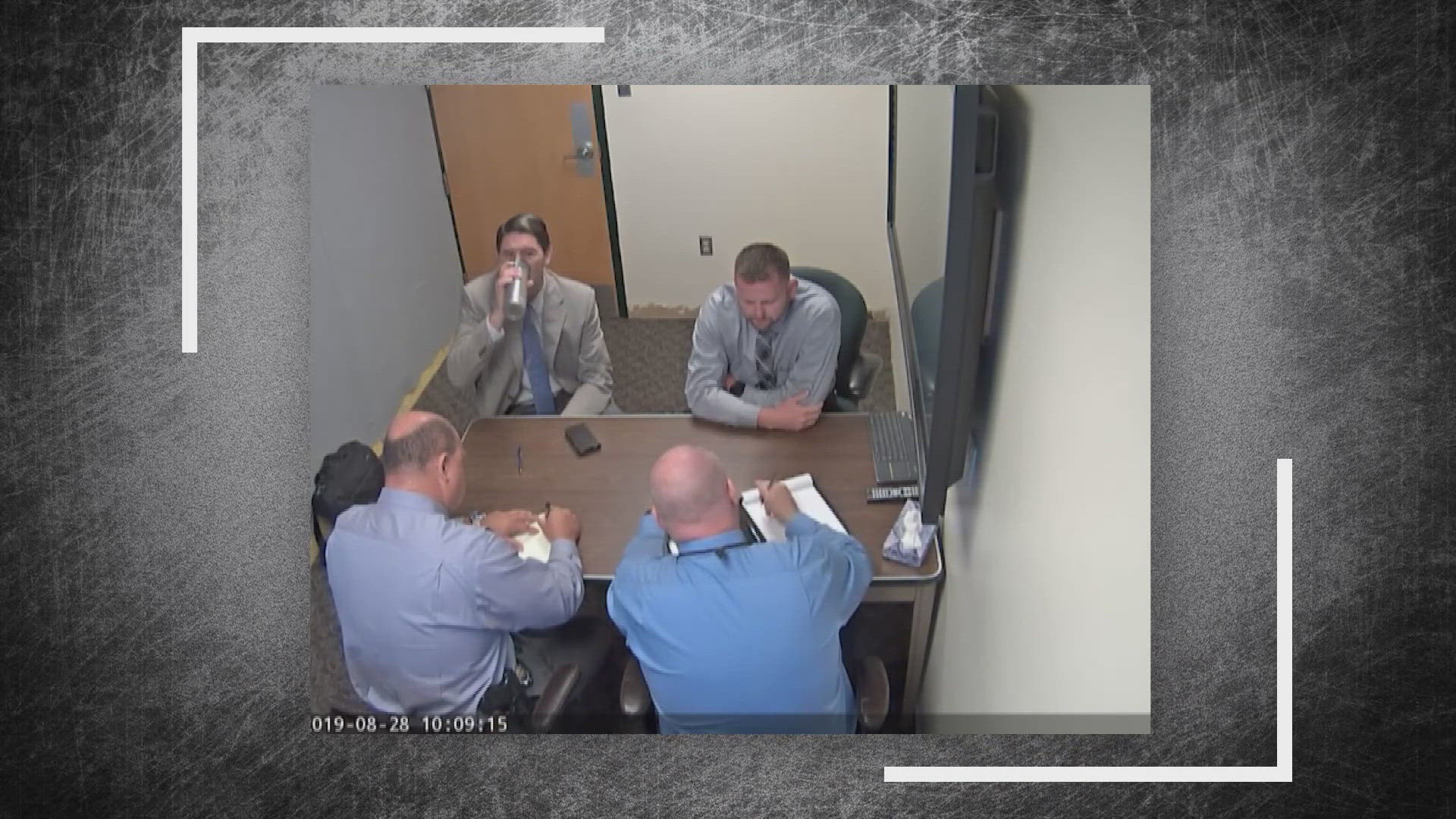AURORA, Colo. — When Jonathan Smith watched the videotaped interviews of the officers and medics involved in the death of Elijah McClain, the former head of special litigation for the Civil Rights Division of the U.S. Department of Justice noticed something right away.
“It’s really stark how much the [lead detective] was not trying to understand what happened,” Smith said during an interview with 9NEWS Investigates.
In the hours and days that followed the takedown and death of Elijah McClain in August 2019, each of the people involved went through formal interviews led by the Aurora Police Department’s Major Crimes Division. Asking almost all the questions was Aurora Detective Matt Ingui.
Smith led a three-member team that concluded that initial investigation, led by the very department responsible for the death, “was flawed and failed to meaningfully develop a fulsome record.” The City of Aurora commissioned the report after McClain's death.


Now, with the prosecutions of the medics and officers complete, 9NEWS Investigates is taking another look at the initial investigation to better understand what went wrong in the days, weeks and months that followed the high-profile death.
What we found, and what Smith tells us, is a window into how investigations of officer misconduct sometimes seek less to investigate and more to exonerate.
“You get little less sense [the investigators] cared what happened,” Smith said.
When Adams County District Attorney Dave Young elected to clear the medics and officers of criminal charges three months after McClain’s death, he relied heavily on those videotaped interviews.


“The evidence suggests,” Young wrote, “they exercised a degree of force they believed necessary to detain [McClain] and investigate into his possible criminal activity.”
But, Smith points out, Ingui appeared, at best, disinterested in the reasoning for the initial stop.
Smith said had Ingui asked proper questions, he would have discovered officers grabbed McClain eight seconds after asking him to stop – a stop that wasn't warranted in the first place because no officer had a specific reason to believe McClain had committed a crime.
Ingui also would have discovered the injection of ketamine – an injection prosecutors now believe led to McClain's death – came many minutes after, with little to no resistance from McClain.
And, Smith said, “If [the responders] didn’t precisely use the right words to justify the use of force, they were coached to do so by the investigator with Major Crimes."
In the report Smith co-authored, the term used to describe that was “magic language.”
“The questions frequently appeared designed to elicit specific exonerating ‘magic language’ found in court rulings,” the report concluded.
The report highlighted the following exchange between Ingui and Officer Nathan Woodyard as an example.
DETECTIVE INGUI: Were you scared?
OFFICER WOODYARD: A little bit, yeah.
DETECTIVE INGUI: OK. So, was there fear within you?
OFFICER WOODYARD: Yes, there was.
DETECTIVE INGUI: OK. Um, both for your own safety and —
OFFICER WOODYARD: For my safety and the officers on scene and for the suspect’s safety.


“We felt the systems were set up not as fact-finding, but really as a way to ensure officers were protected from the charges and misconduct,” Smith said.
The report concluded, “The interviews conducted by Major Crime were neither probing nor thorough as would be expected in the case of an in-custody death.”
“In addition,” it read, “the report of the Major Crime Unit stretched the record to exonerate the officers rather than present a neutral version of the facts.”
In 2021, the Colorado attorney general announced a grand jury had returned criminal charges against Aurora officers Woodward, Randy Roedema and Jason Rosenblatt, as well as against Aurora Fire Rescue firefighters Jeremy Cooper and Peter Cichuniec.
Juries acquitted Woodyard and Rosenblatt. Roedema is currently serving a 14-month jail sentence. Cooper is serving a 14-month work-release sentence. Cichuniec is serving a five-year prison sentence.
9NEWS Investigates asked the Aurora Police Department what the process looks like when someone dies or is seriously injured following officer restraint. Police spokesperson Joe Moylan said when this happens, all applicable investigations start at the same time and run concurrently – a change from the previous process.
The previous process was for the various investigations to run consecutively, beginning with the criminal investigation done by the CIRT team, followed by the use of force investigation done by the Force Investigations Unit and then an administrative investigation by the Internal Investigations Bureau, Moylan said.
9NEWS Investigates asked whether there were any major changes to protocol after the release of Smith's team's report. Moylan referred 9NEWS to the department's latest consent decree monitor report, saying "The consent decree is the guiding document for all mandated reforms stemming from Elijah McClain’s tragic death."
SUGGESTED VIDEOS: The death of Elijah McClain

